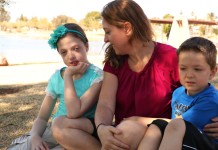
Moldova, in a number of CIS countries is at a high risk of having to pay bribes to access basic public services. Left with only 3,5 million citizens, of which 1 million strives to find better lives abroad, the remaining population has to daily struggle with corruption, poor public service, while political parties fight for which strategic partners to align, European Union or EuroAsia Community.
In Azerbaijan, Kyrgyz Republic, Ukraine and Moldova around two in five households who had accessed public services paid a bribes. The Transparency International reports show that bribery is a particular risk for Moldovan citizens when needing public medical care, where more than two in five households had paid a bribe when accessing public health services. Even if the Ministry of Health, along with many other government institutions praise their public policies align with European standards, modernised equipment and restored physical buildings after reforms, the mentality of the public servants yet remain unchanged.
Why children become mentally disabled?
Radu Clichici and Natalia Mesina, a young family from a village of Ruseştii Noi in Moldova, is one of many families in this country that face a resistant system to real changes for public good. They accuse doctors from maternity hospital in Ialoveni district for damaging the health of their baby at birth. Since two years now, the child was born without any sign of life, but soon recovered. They were told that the baby swallowed amniotic fluid from mother’s placenta, that is why he was in sleepy mood.
The next morning the child was experiencing seizures and was immediately transferred to Mother and Child Institute for intensive care in the capital of Moldova, Chisinau, the specialised centre for serious health conditions. The young couple believes that midwives and primary medical staff failed to take all actions needed to avoid serious health problems of the child who suffered asphyxia.

The baby is now diagnosed with mental disorder, a form of cerebral palsy, which was only later identified by the specialists from Moscow, since Moldovan doctors were not aware about baby’s health gravity. They were told that caesarean surgery was preferred rather than natural birth to avoid baby’s interaction with amniotic fluid that damaged the child’s brains, which provoked epilepsy.
They came to know the reality within a year after the child’s birth, when they required a medical legal expertise of the baby to be done in Moldova. It also shows that the doctor who received the birth did not correctly estimate child’s condition and they avoid to mention any measured undertaken such as resuscitating the child after birth. As well, a vaccine was administrated immediately, which made the baby suffer badly.
With a legal medical expertise in hand, Clichici family wanted more clarity from the Ministry of Health that started to investigate the case only in October 2016. The parents’ agony increased when the response of the Ministry of Health was favouring the medical staff as being competent and professional.
“The patient was fully examined at maternity and the birth plan was occurring all natural pathways that go in hand with the existing obstetrical norms. Nonconformities of the medical service was not found. The findings does not support any physical trauma or assume any hypoxia”, was mentioned in the Ministry’s letter. According to the Moldovan doctors, the brain injury symptoms such as cerebral atrophy occurs just two months after receiving birth might have to deal with a congenital disease of their parents.
How Government deals with critical medical cases
On March 31st, 2016 the district prosecutor’s office started a criminal case against the hospital in Ialoveni claiming on negligent violation of rules or methods of medical assistance which have caused serious harm to physical integrity and health of the patient. The investigations are still ongoing.
Radu Clichici explained in a video taken by Curaj TV portal that he is determined to fight the medical system of Moldova after he identified some allies, other parents that faced a similar situation with the same doctor three years ago and who’s child suffer epilepsy and distrophya, even if the pictures from birth show the baby in healthy conditions.
 The Ministry of Health in Moldova has not come up with any conclusion of the investigation that is still running on a mother that died on November 27th last year only 10 days after she gave birth to her second child. Diana Volovet, 31, from a vulnerable family in Causeni city informed National Anti-Corupption Centre and Ministry of Health that doctors from Mother and Child Institute from Chisinau had demanded bribes of 100$ in order to remove the threads after the surgery.
The Ministry of Health in Moldova has not come up with any conclusion of the investigation that is still running on a mother that died on November 27th last year only 10 days after she gave birth to her second child. Diana Volovet, 31, from a vulnerable family in Causeni city informed National Anti-Corupption Centre and Ministry of Health that doctors from Mother and Child Institute from Chisinau had demanded bribes of 100$ in order to remove the threads after the surgery.
The woman was fully covered and pregnant women in Moldova usually benefit of free birth service. She was discharged from the hospital only after 4 days after a complicated birth and in a bad health condition, although the medical papers say that she asked to go back home in Causeni to her three year old child who was living in miserable and cold conditions.

The next day, Serbenco Anatolie, the obstetrician who made the surgery came over her house with the help of Diana’s local family doctor to finish his job and asked her to sign a paper addressing Ministry of Health that she has no claims on doctor’s service neither on the Institute where she gave birth, which she did.
Unfortunately, the woman was feeling badly and was also accusing diabetis, a diagnosis which she suffered long before giving birth. On Sunday evening, after her husband turned back from shopping she was found dead, leaving behind two orphan children.
According to the preliminary results of the legal medical investigations, the cause of her death excludes any complications of the cesarean surgery, according to the medical results, the women had died due to a cardiac arrest while she was diabetic. This was the motive for which she was sent by local doctors from Causeni to the Institute of Mother and Child in Chisinau to give birth, since her health was in risky conditions. Her husband believes that she was too early discharged from the hospital where she had to be given longer stay and better medical treatment.
A pregnant woman was refused ambulance service
A few days ago, another young lady, Maria Gadiac, with the dead baby in the belly, had to come on her own transportation to Chisinau from her small village Horodiste (90 km) to do a surgery. Since the Ministry of Health reforms, only the Institute of Mother and Child from Chisinau is able to take serious public medical cases in hand, while the rest of the local and regional medical centres perform daily duties.
Maria had to pay extra money to do unexpected gynaecological examination in her district, because all scared public free service. Doctors in the nearby city, Rezina, informed her about terrible news and instead of offering moral and physical support, she was left alone to reach the capital city hospital herself.
The pregnant informed the doctor that she does not have finances to go to Chisinau and instead, had to go home, while her health condition got worse. Her husband helped to find money and reached the hospital by public transportation. Finally, she was examined only in three days, because no service as surgery is provided during week-ends in public hospitals of Moldova. The public opinion in Moldova was very critical of the doctors who were not able to offer any ambulance to avoid such complications, but the Ministry of Health came up with a public note that only in risky situations such scared ambulances are provided.

“According to the national protocol, a paper which was created in 2014 by a team of doctors specialised in medical science, local specialists took into account the international standards that guide on the woman’s assistance in such situations. Protocol does not provide call ambulance for transporting pregnant women, where there are no complications and risk to life”, explained the Ministry of Health in a public note.
Comments on social networks raise up concert about bribery in the medical sector of Moldova, many citizens knowing the reality, think that such difficulties could be easily avoided if these families paid the right money, as most do. Since the medical sector of Moldova is mostly financed by a poor government, the average wage of doctors in Moldova is 300$. That is why, the majority of patients try to pay for medical services even if they have a medical coverage, assure that their health stays in good conditions.
Baby steps to undertake social justice
According to a Transparency International report, Moldova is one of the few ex-soviet countries where more than a half of citizens rate their government efforts badly fighting corruption and is rated poorly by their citizens across all of the key questions in the Global Corruption Barometer survey made last year. Two thirds of Moldovan citizens are saying that it should be a priority for the government.
So far, three doctors from Child and Mothers Institute from Chisinau were condemned for malpractice for two years with suspension, according to the General Prosecutor office of Moldova. These were deprived of the right to practice medicine. They were found guilty for not properly monitoring birth developments and applied late resuscitation of the newborn. As a result of doctors negligence, brain damage occurred and the baby suffered serious obstetric asphyxia, which caused disability and further health development. Ultimately, the child died in 2015.
Prosecutors ordered a survey by the National Institute of Legal Medicine and surprisingly it showed that doctors had no fault. Moldovan prosecutors ordered a survey from Bucharest, Romania to run the same investigation, which in the end found that the birth process was not properly monitored by doctors and complications could have been avoided by performing caesarean surgery, which they did not consider.
Moldova, in a number of CIS countries is at a high risk of having to pay bribes to access basic public services. In Azerbaijan, Kyrgyz Republic, Ukraine and Moldova around two in five households who had accessed public services paid a bribes. Bribery is a particular risk for households in Tajikistan and Moldova when needing public medical care, where more than two in five households had paid a bribe when accessing public health services.




















